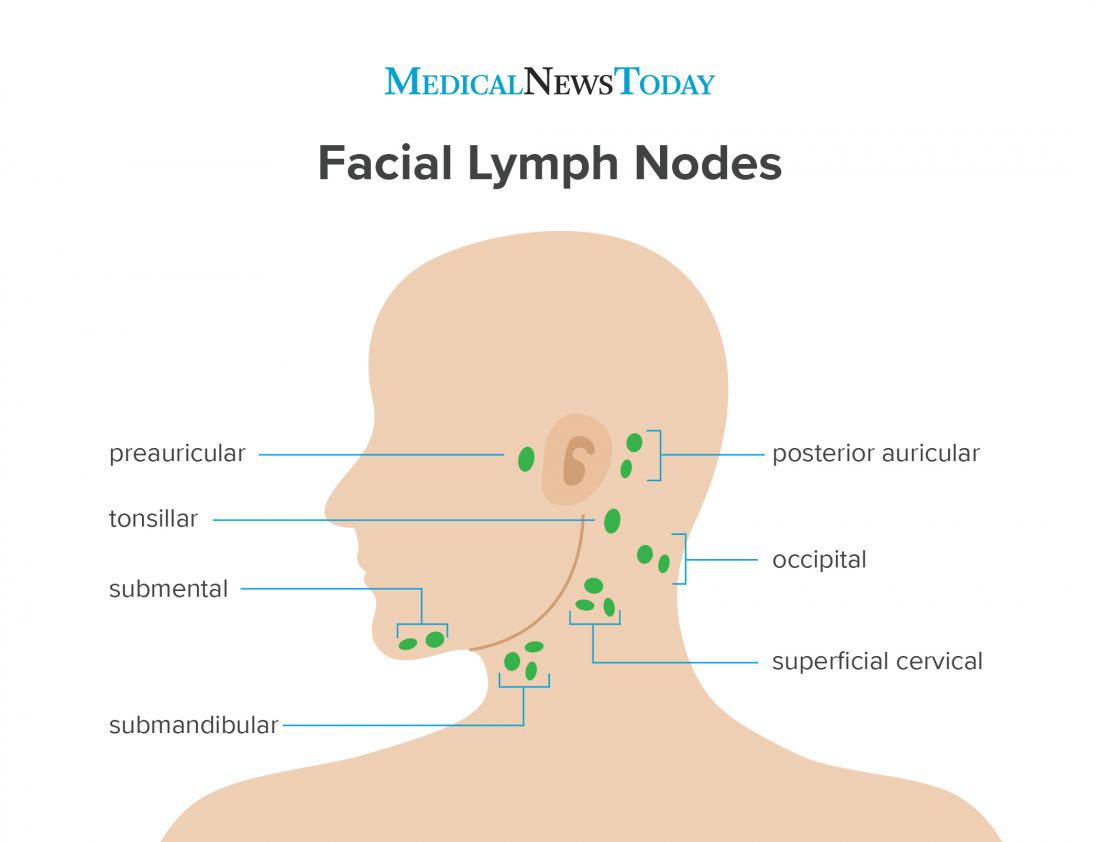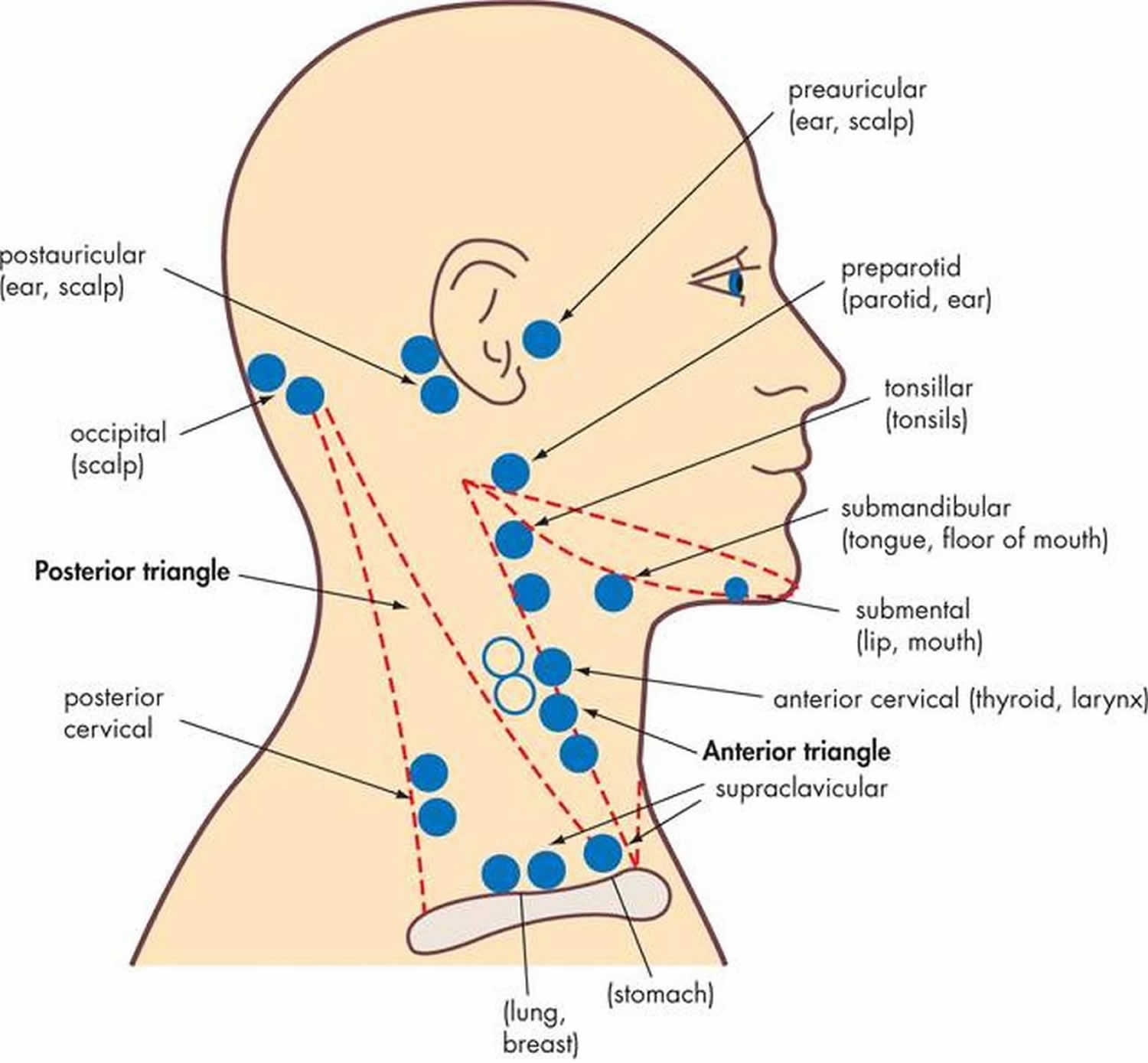Where Are The Lymph Nodes In Your Neck - If you've ever had a cold or a sore throat, you know that the lymph nodes in your neck can swell up and become sore. But did you know that lymph nodes in your neck can also be a sign of more serious health concerns, like cancer? It's important to know where your lymph nodes are and what they do in order to stay aware of your overall health. In this post, we'll go over the basics of neck lymph nodes and what you should know about them.
Preauricular lymph nodes: Causes of swelling
Swelling of lymph nodes can be concerning

Preauricular lymph nodes are located just in front of the ears. They can become swollen due to a variety of reasons, such as an infection in the scalp, ears, or eyes. Rarer causes of swelling include viral infections, autoimmune diseases, or cancer. If you notice swelling in your preauricular lymph nodes that is not accompanied by symptoms like fever or pain, it's often nothing to worry about. However, if the swelling persists or is accompanied by other symptoms, such as difficulty swallowing or breathing, you should consult with your healthcare provider.
Lymph nodes in neck
Understanding the lymphatic system

The lymphatic system is a network of tissues and organs that helps rid the body of toxins, waste, and other unwanted materials. Lymph nodes are one part of this system. They help to filter and trap foreign substances, such as bacteria or cancer cells, that may be present in the lymphatic fluid. Lymph nodes in the neck can become swollen for a variety of reasons, including infection, inflammation, or cancer. In some cases, swollen lymph nodes may be a sign of a more serious underlying condition, such as HIV or leukemia. It's important to pay attention to any changes in the lymph nodes and to consult with your healthcare provider if you notice anything unusual.
Lymph Node Biopsy
When a biopsy may be recommended
A lymph node biopsy is a procedure in which a small sample of tissue is removed from a lymph node and examined under a microscope. This procedure may be recommended if there is a concern that the lymph node may be cancerous. A lymph node biopsy can provide important information about the type of cancer, the stage of the cancer, and the best treatment options. Biopsies may be performed using a needle or during surgery. The procedure is typically done on an outpatient basis and is generally well-tolerated. If you have been recommended for a lymph node biopsy, it's important to follow your healthcare provider's recommendations and to ask any questions you may have about the procedure.
Nasopharyngeal cancer
Symptoms and treatment of nasopharyngeal cancer

Nasopharyngeal cancer is a rare type of cancer that affects the upper part of the throat, behind the nose. Symptoms of nasopharyngeal cancer can include a persistent sore throat, difficulty swallowing, ear pain, and swollen lymph nodes in the neck. If you have symptoms of nasopharyngeal cancer, it's important to see a healthcare provider right away. Treatment options may include radiation therapy, chemotherapy, and surgery. Early diagnosis and treatment are key to improving outcomes for nasopharyngeal cancer.
Lymph Nodes in Neck
What you should do if you notice swollen lymph nodes

If you notice swollen lymph nodes in your neck, it's important to pay attention to any other symptoms that may be present. If you have a fever, night sweats, or unexplained weight loss, you should consult with your healthcare provider. Other symptoms that may be concerning include difficulty swallowing or breathing, or a persistent cough. Depending on the underlying cause of the swollen lymph nodes, your healthcare provider may recommend a variety of treatment options, including antibiotics for infection or chemotherapy for cancer. It's important to stay informed and to work with your healthcare provider to create a treatment plan that is right for you.
Tips, Ideas, and How-To
- Practice good hygiene to help prevent infections that can lead to swollen lymph nodes
- Stay up-to-date on recommended cancer screenings to catch any potential issues early
- Pay attention to your body and any changes you may notice, including changes in lymph node size or texture
- Work with your healthcare provider to create a wellness plan that promotes overall health and wellbeing
- Don't hesitate to ask questions or voice any concerns you may have about your health
Now that you know more about lymph nodes in your neck, you can take steps to stay informed and aware of your overall health. By paying attention to your body and working with your healthcare provider, you can stay proactive when it comes to your health and wellbeing.
Read more articles about Where Are The Lymph Nodes In Your Neck